Is Using Essential Oils in a Diffuser Safe
Essential oils have gained popularity for their therapeutic benefits, with diffusers becoming a common way to enjoy their effects. Can you use essential oils in diffusers safely?
This article will explore what essential oils are, how they work in a diffuser, the benefits of using them, safety precautions to take, potential side effects, and whether they can be harmful to pets or children.
We will discuss how to choose the right oils, clean and maintain your diffuser, and explore alternative options.
Key Takeaways:
What Are Essential Oils?
Essential oils are natural compounds extracted from plants, known for their aromatic and therapeutic properties. They contain terpenes that contribute to their health and wellness benefits.
These oils are derived through various extraction methods such as steam distillation, cold pressing, or solvent extraction. For example, Eucalyptus oil is commonly extracted from the leaves of the Eucalyptus tree, while Frankincense oil comes from the resin of the Boswellia tree. Lavender oil is obtained from the flowering tops of the Lavandula plant.
The presence of terpenes in essential oils is crucial for their therapeutic effects. Terpenes are organic compounds responsible for the distinct aroma of each oil and are believed to have various health-promoting properties. In aromatherapy, these oils are used to promote relaxation, alleviate stress, improve sleep quality, and boost overall well-being.
What Is a Diffuser?
A diffuser is a device that disperses essential oils into the air through inhalation, allowing for the diffusion of various scents. It is commonly used for creating a relaxing atmosphere.
There are several types of diffusers available in the market to suit different preferences and needs. These include ultrasonic diffusers, nebulizing diffusers, heat diffusers, and evaporative diffusers.
- Ultrasonic diffusers use water to disperse the essential oils as a fine mist.
- Nebulizing diffusers break down the oils into tiny particles without using heat or water.
- Heat diffusers use heat to evaporate the oils.
- Evaporative diffusers rely on air flow to spread the scents.
Each type of diffuser has its unique way of dispersing the oils, contributing to a soothing ambiance and promoting relaxation.
How Do Essential Oils Work in a Diffuser?
When essential oils are placed in a diffuser, they are dispersed into the air, allowing for inhalation and absorption through the respiratory system. This leads to various therapeutic effects.
The mechanism of action behind the therapeutic effects of essential oils in a diffuser is fascinating. As the diffuser breaks down the oils into tiny molecules, they become easily inhalable. Once inhaled, these tiny particles travel through the respiratory system and reach the olfactory bulb, where they interact with the brain’s limbic system. Learn more about essential oils diffuser safety.
This interaction triggers various responses in the body, affecting heart rate, stress levels, mood, and even immune function. Research has shown that certain essential oils, such as lavender and peppermint, have demonstrated calming effects on the nervous system, while others like eucalyptus possess potent anti-inflammatory properties that can alleviate respiratory issues.
What Are the Benefits of Using Essential Oils in a Diffuser?
Using essential oils in a diffuser offers a range of benefits, including promoting relaxation, alleviating anxiety, improving skin health, and potentially addressing hormonal abnormalities.
Research has shown that certain scents like lavender and chamomile can have a calming effect on the mind, making them ideal choices for relaxation and stress reduction.
Oils like tea tree and frankincense are known for their skin-healing properties, helping to rejuvenate and soothe the skin.
Essential oils such as clary sage and peppermint are believed to aid in balancing hormones, providing support for those struggling with hormonal issues.
Aromatherapy
Aromatherapy, the practice of using essential oils to enhance psychological and physical well-being, has been studied for its benefits in promoting relaxation and stress relief.
Specific essential oils like lavender, known for its calming properties, or peppermint for its invigorating effects, play a crucial role in aromatherapy. Studies have shown that inhaling these oils can help reduce cortisol levels, the hormone associated with stress, thus promoting a sense of calmness and well-being.
Research has demonstrated that the scent of ylang ylang essential oil can help lower blood pressure and heart rate. The aroma of bergamot oil has been linked to reducing anxiety levels by affecting the nervous system positively.
Mood Enhancement
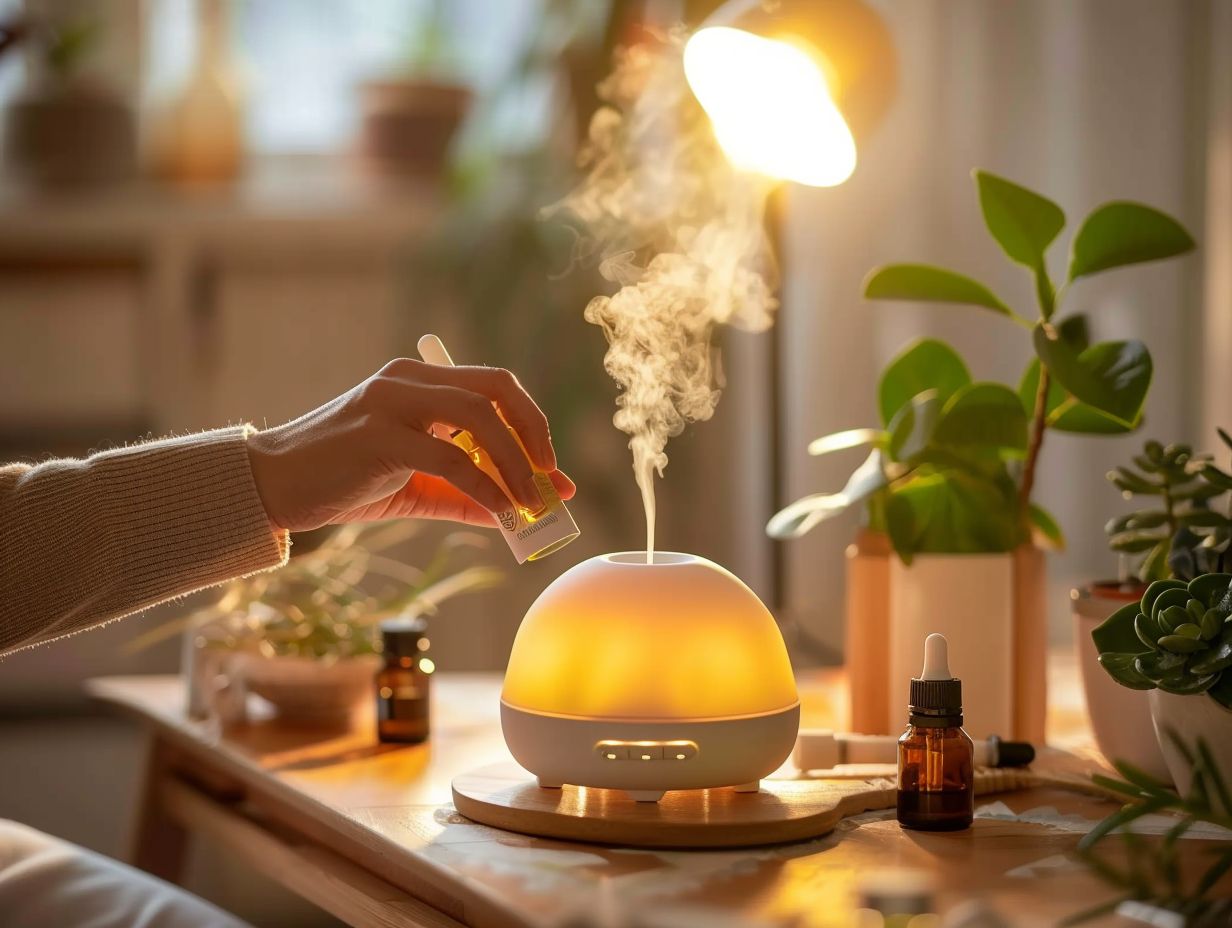
One popular essential oil known for its calming effects is lavender. Inhaling the gentle floral aroma of lavender can help reduce stress and anxiety levels, promoting a sense of peace and tranquility.
On the other hand, citrus scents like lemon and orange are invigorating and uplifting, ideal for boosting energy and improving mood.
Peppermint is another versatile essential oil that can both energize and soothe. Its fresh, minty scent can enhance focus and mental clarity, making it a great choice for productivity.
For those seeking a sense of balance and grounding, earthy scents like sandalwood and patchouli can provide a comforting and harmonizing effect.
Air Purification
Essential oil diffusers not only spread pleasant scents but also aid in air purification, especially when used in well-ventilated spaces.
By releasing fine aromatic particles into the air, essential oil diffusers can effectively neutralize unwanted odors and impurities, creating a more diffuser safety.
Proper ventilation is key in maximizing the benefits of diffusing essential oils as it helps to circulate the purified air throughout the space, preventing stagnation and ensuring an optimal diffusion experience.
Relaxation and Stress Relief
One of the key benefits of using essential oils in a diffuser is the promotion of relaxation and stress relief through the gentle diffusion of calming scents.
When essential oils are diffused into the air, they can have a profound impact on both the body and mind. For instance, the scent of lavender has been shown to reduce cortisol levels, the stress hormone, promoting a sense of calm and tranquility.
Similarly, the fresh and citrusy aroma of bergamot essential oil is known for its mood-boosting properties. By inhaling this scent, it can help to alleviate anxiety and improve overall well-being.
The warm and woody fragrance of sandalwood oil is often used for its grounding and meditative effects, perfect for unwinding after a long day.
What Are the Safety Precautions for Using Essential Oils in a Diffuser?
To ensure safe usage, it is essential to follow proper dilution ratios, take necessary precautions to avoid risks of allergic reactions, and avoid ingestion of essential oils when using them in a diffuser.
When diluting essential oils for diffusion, it’s crucial to adhere to the recommended guidelines provided by reputable sources or aromatherapists. Dilution helps in minimizing skin irritations and respiratory issues that might arise, especially for individuals with sensitive skin or respiratory conditions.
In terms of using essential oils around children and pets, extra caution is warranted. Some oils can be toxic to pets or cause adverse reactions in children if not properly diluted or diffused. It’s best to keep aromatherapy diffusers safe for dogs out of reach of pets and in well-ventilated areas away from the direct proximity of children.
Avoiding ingestion of essential oils is paramount as some oils are not safe for internal consumption and can lead to serious health complications. Always read the labels and research the proper usage of each oil before incorporating them into your diffuser blends to ensure a safe and enjoyable aromatic experience.
Dilution
Proper dilution of essential oils
before using them in a diffuser is crucial to prevent skin sensitivities and ensure the quality and effectiveness of the oils.
In terms of diluting essential oils, one must consider the concentration and potency of the oil to determine the appropriate dilution ratio for safe use. Different oils have varying intensities, so a general rule of thumb is to dilute one drop of essential oil with a certain amount of carrier oil, such as coconut or jojoba oil. Essential oils like lavender may require less dilution due to their mild nature, while oils like peppermint should be diluted more to avoid any adverse reactions.
Allergies and Sensitivities
Individuals with allergies or sensitivities should be cautious when using essential oils in a diffuser to avoid potential adverse reactions or side effects.
Common allergic reactions to essential oils can range from skin irritation, such as redness, itching, or swelling, to more severe symptoms like breathing difficulties or anaphylaxis.
It’s essential to perform a patch test before regular use by applying a diluted oil to a small area of skin and waiting 24 hours for any negative responses.
Certain oils, such as lavender, tea tree, and peppermint, are known to trigger allergic responses in some individuals due to their potent nature.
Proper Use and Dosage
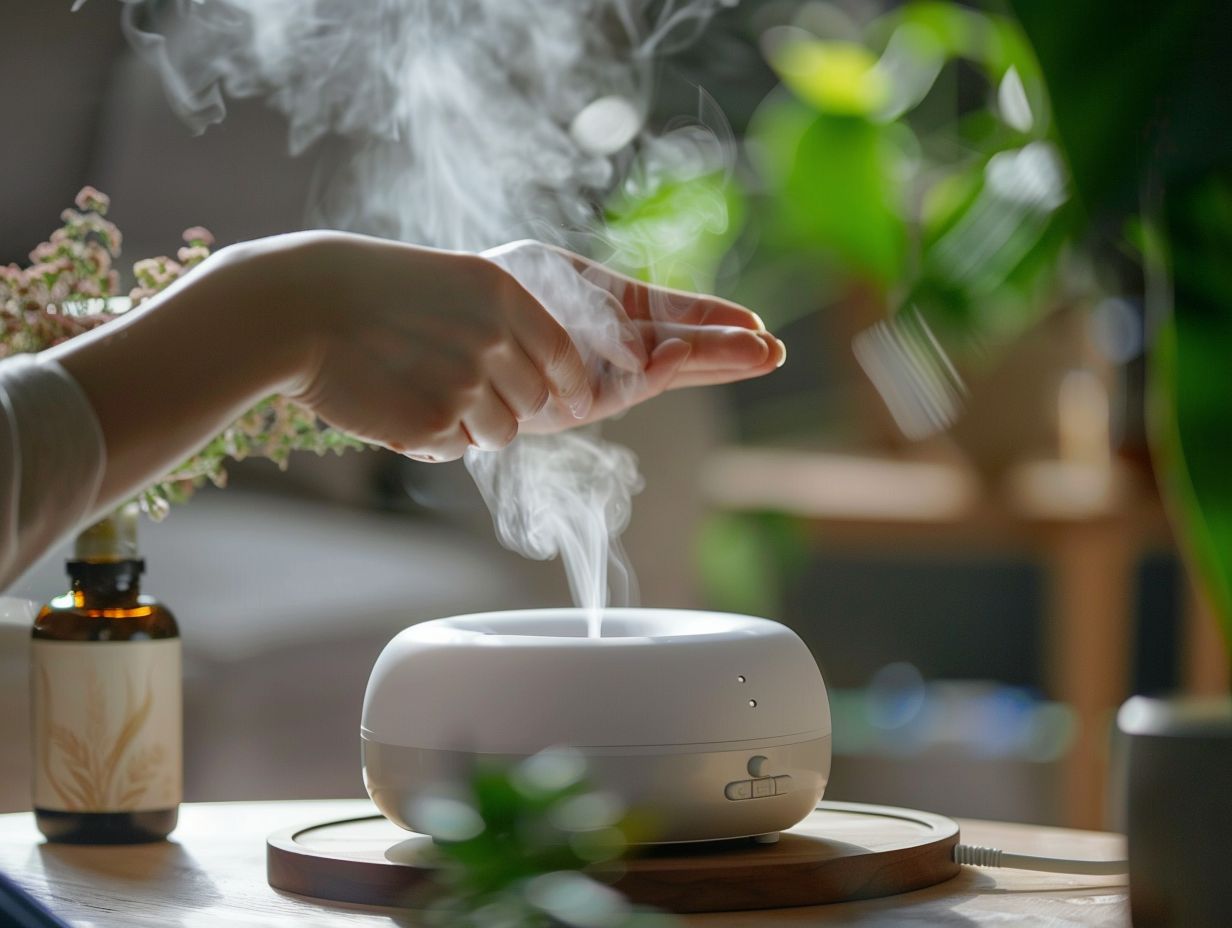
When using essential oils in a diffuser, it is crucial to understand the proper dosage to avoid any adverse effects. Most diffusers come with clear instructions on the amount of oil to be used. Typically, a few drops are sufficient for a standard-sized room, but essential oil potency varies, so it’s important to start with a small amount and adjust based on personal preference.
Consider the diffusion method when using essential oils in a diffuser. Some oils are best diffused continuously, while others work well with intermittent diffusion. Experimenting with different methods can help you find what works best for you.
Safety is paramount when using essential oils in a diffuser. Keep diffusers out of reach of children and pets, and ensure proper ventilation in the room. If you experience any adverse reactions, such as irritation or allergies, discontinue use immediately.
Avoiding Certain Essential Oils
Some essential oils pose risks, especially when ingested, so it is important to avoid using oils known for their toxic effects or potential dangers in a diffuser.
Among the essential oils that should be approached with caution are Eucalyptus oil, which can be toxic if ingested and may cause nausea or dizziness when diffused. Similarly, Tea Tree oil, when consumed orally, can lead to serious side effects like confusion and poor coordination.
- Clove oil is another potent oil that should not be ingested as it can cause vomiting or even organ damage.
- Wintergreen oil contains high levels of methyl salicylate, which can be harmful if ingested and may cause respiratory issues if diffused in excess.
It is crucial to remember that even though these oils have therapeutic benefits when used correctly, safe alternatives should be considered to avoid any risks to health and well-being.
Are There Any Side Effects of Using Essential Oils in a Diffuser?
While generally safe, using essential oils in a diffuser can sometimes lead to side effects such as skin irritations or respiratory reactions, especially in individuals with sensitivities.
Skin irritations are a common side effect of essential oil diffusion, often manifesting as redness, itching, or a rash on the skin. In some cases, certain oils can be phototoxic, increasing the skin’s sensitivity to sunlight.
As for respiratory reactions, inhaling certain essential oils may trigger coughing, throat irritation, or even asthma symptoms in susceptible individuals. Is essential oils dangerous for your health?
To minimize these side effects, it’s important to dilute essential oils properly before diffusing them, especially for those with sensitive skin. Ensure proper ventilation in the room where the diffuser is placed to prevent respiratory issues. Always test a small amount of oil on a patch of skin before widespread use to check for any adverse reactions. By following these precautions, you can enjoy the benefits of essential oil diffusion with minimal risk of side effects.
Can Essential Oils in a Diffuser Be Harmful to Pets or Children?
It is important to take precautions when using essential oils in a diffuser around pets and children to prevent ingestion and ensure proper ventilation to minimize any potential risks.
Diffused essential oils can pose risks to pets and children due to their sensitive respiratory systems. The inhalation of certain essential oils may lead to respiratory issues, poisoning, or allergic reactions in pets and young ones. To mitigate these dangers, ensure you place the diffuser out of reach of pets and children, and always diffuse oils in well-ventilated areas. For more information on safe diffusing of essential oils, consult our guide.
When diffusing oils, consider using mild, pet-safe essential oils such as lavender, chamomile, and frankincense. Avoid oils like tea tree and eucalyptus that can be toxic to pets when inhaled or ingested. Additionally, keep diffusers in open spaces rather than closed rooms to prevent concentration of vapors, and never lock animals or kids in a room with a diffuser running.
How to Choose the Right Essential Oils for Diffusing?
When selecting essential oils for diffusing, it is essential to consider factors such as quality, purity, and individual preferences to ensure optimal benefits and effectiveness.
Quality is a key factor, as it dictates the efficacy and safety of the essential oil. Look for oils that are pure and free from synthetic additives or dilutions. Sourcing plays a crucial role too; opt for oils that are roll-on essential oils that are ethically sourced and sustainably harvested to support eco-friendly practices.
Understanding your personal preferences and needs is also vital, as different oils offer unique benefits like relaxation, focus, or immune support. To navigate the market successfully, research reputable suppliers known for their commitment to transparency and quality standards.
How to Properly Clean and Maintain a Diffuser?
Regular cleaning and maintenance of a diffuser are essential to ensure its longevity and optimal performance in diffusing essential oils effectively.
To begin the cleaning process, start by unplugging your diffuser and emptying any remaining water and essential oil blend from the reservoir. Next, use a soft, damp cloth to wipe down the interior of the diffuser, being careful not to let any liquid enter the air vent or other openings. For a deeper clean, you can use a mixture of water and white vinegar to clean the inside of the diffuser. Regularly cleaning your diffuser not only prevents residue buildup but also ensures that your essential oils are diffused efficiently.
Remember to clean your diffuser at least once a week if you use it frequently, and every time you change essential oils to prevent any unwanted scent mixing. If you encounter issues like weak mist output or strange odors, consider deep cleaning the unit with a specialized diffuser cleaner or consult the manufacturer’s guidelines for troubleshooting tips.
What Are Some Alternatives to Using Essential Oils in a Diffuser?
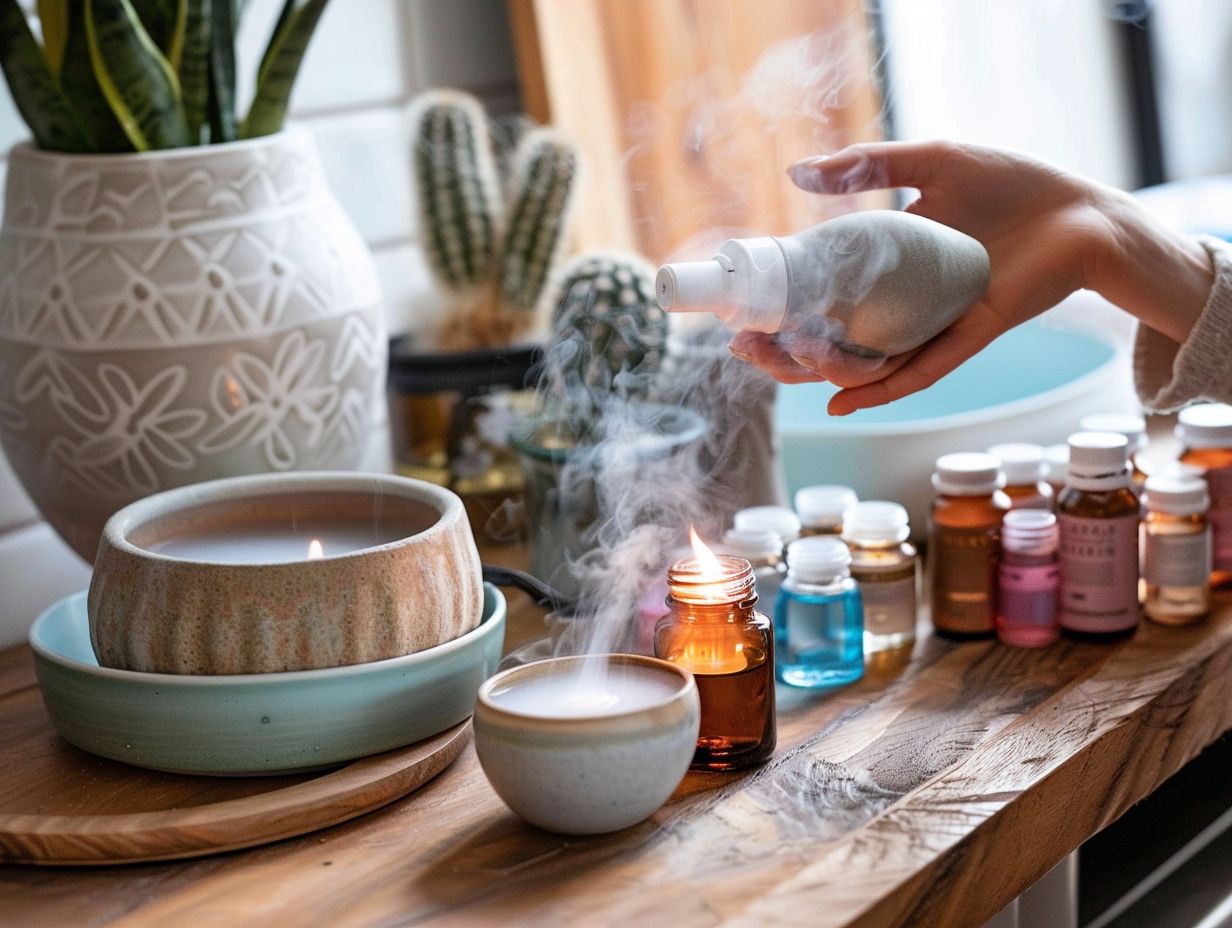
Scented candles are a popular choice for creating a cozy atmosphere and infusing spaces with delightful fragrances. They come in various scents like lavender, vanilla, and citrus, providing a wide range of options to suit different preferences. Some scented candles may contain synthetic fragrances that may not appeal to those seeking natural aromas.
Potpourri, on the other hand, consists of dried flowers, herbs, and spices that emit a subtle, long-lasting scent. Placing potpourri in decorative bowls around the house can add a touch of fragrance without the need for a constant heat source. Yet, potpourri needs occasional refreshing or replacing to maintain its potency.
Natural room sprays, crafted from essential oils harmful and water, offer a quick and efficient way to freshen up a room. They are versatile, allowing users to customize scents based on their moods and preferences. The longevity of the scent may not be as lasting as other methods, necessitating more frequent reapplication.
Frequently Asked Questions
Is using essential oils in a diffuser safe?
Yes, using essential oils in a diffuser is generally considered safe. However, it is important to use them properly and follow certain precautions.
What are the benefits of using essential oils in a diffuser?
Using essential oils in a diffuser can have many benefits, such as promoting relaxation, reducing stress and anxiety, improving sleep, and providing natural air purification.
What types of essential oils are safe to use in a diffuser?
Most essential oils are safe to use in a diffuser, but it is important to research and use high-quality, pure oils. Some common safe options include lavender, lemon, peppermint, and eucalyptus.
Are there any risks associated with using essential oils in a diffuser?
In certain cases, using essential oils in a diffuser may cause respiratory irritation or allergic reactions. It is important to properly dilute oils and use caution when diffusing around children or pets.
How long should I run my diffuser with essential oils?
The recommended duration for diffusing essential oils is typically 30 minutes to 1 hour. It is important to follow the instructions of your specific diffuser and take breaks between uses.
Can I use essential oils in a diffuser if I am pregnant?
There is limited research on the safety of using essential oils in a diffuser during pregnancy. It is best to consult with a healthcare professional before using any essential oils if you are pregnant.

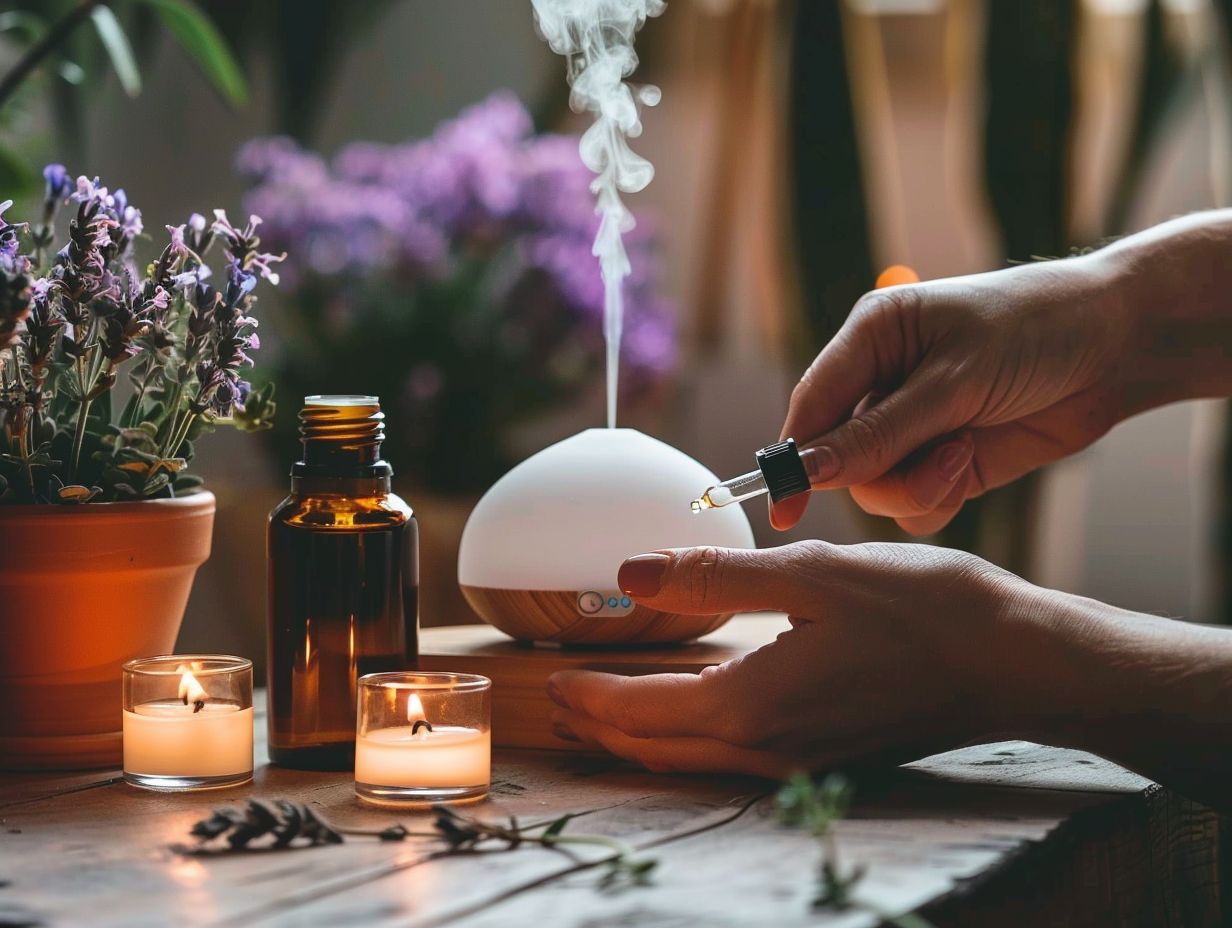

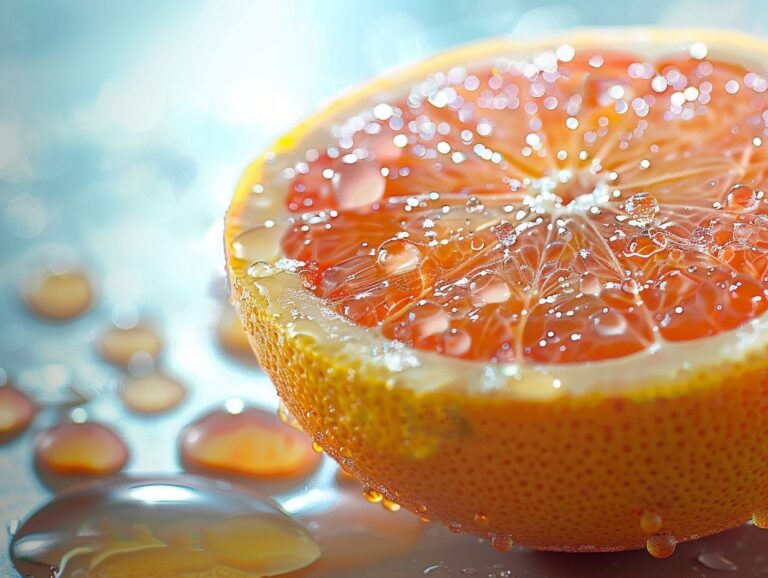
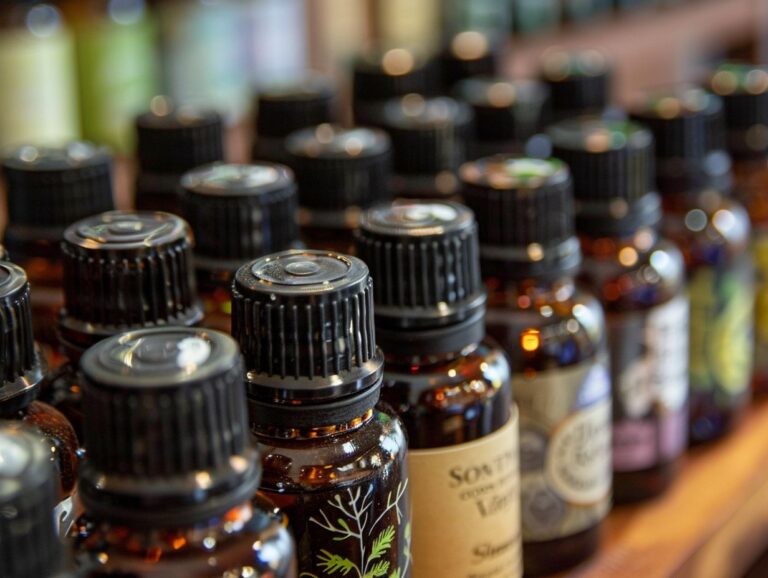
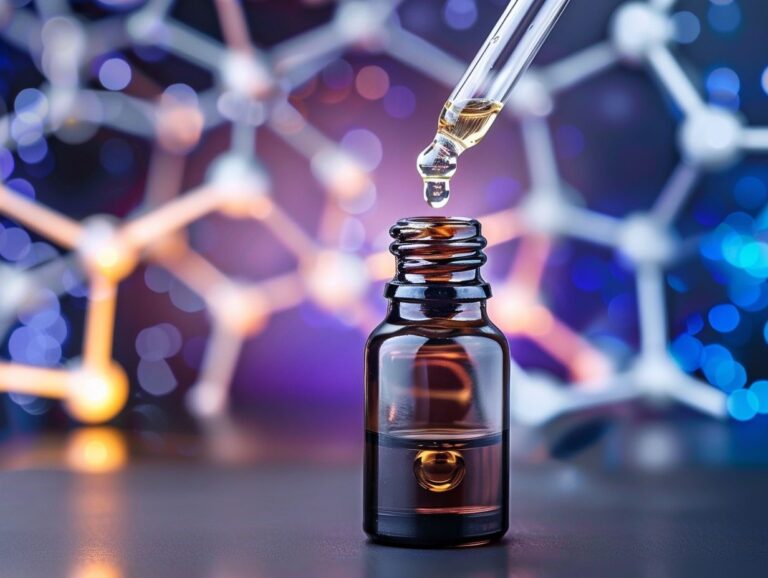

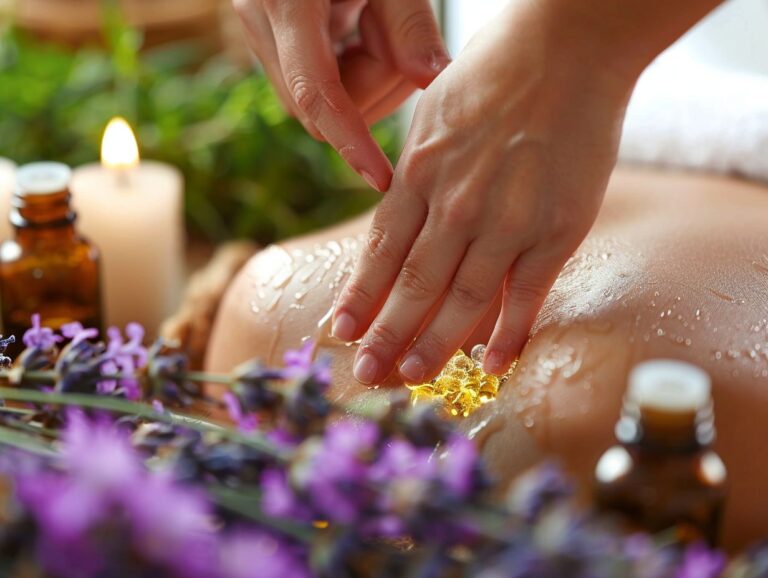
3 Comments